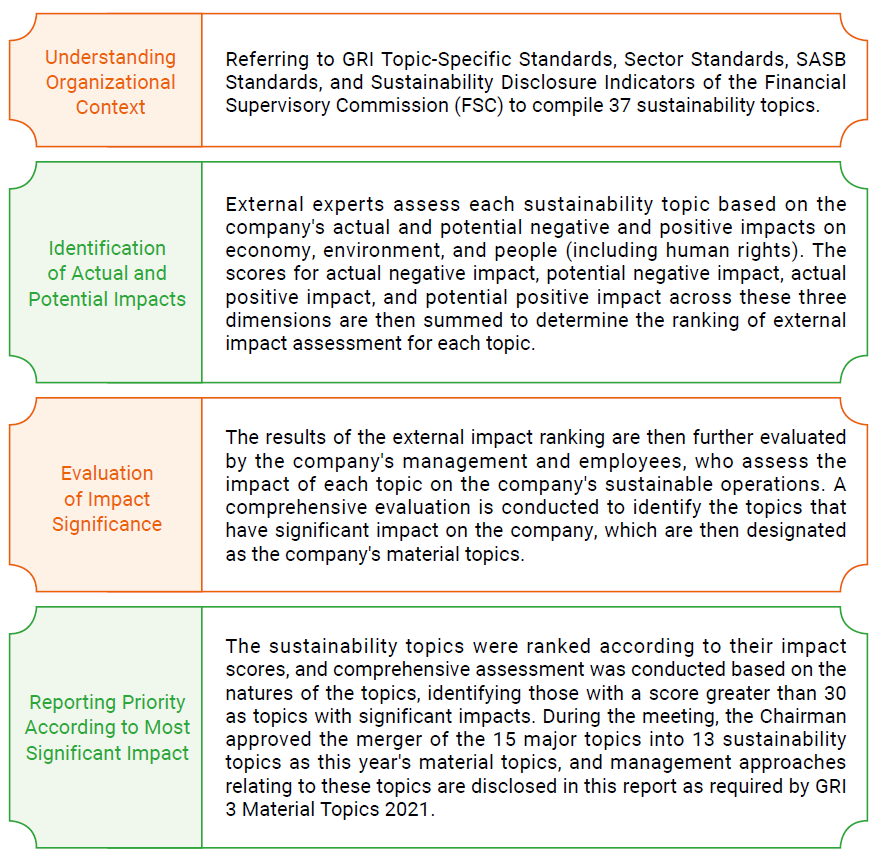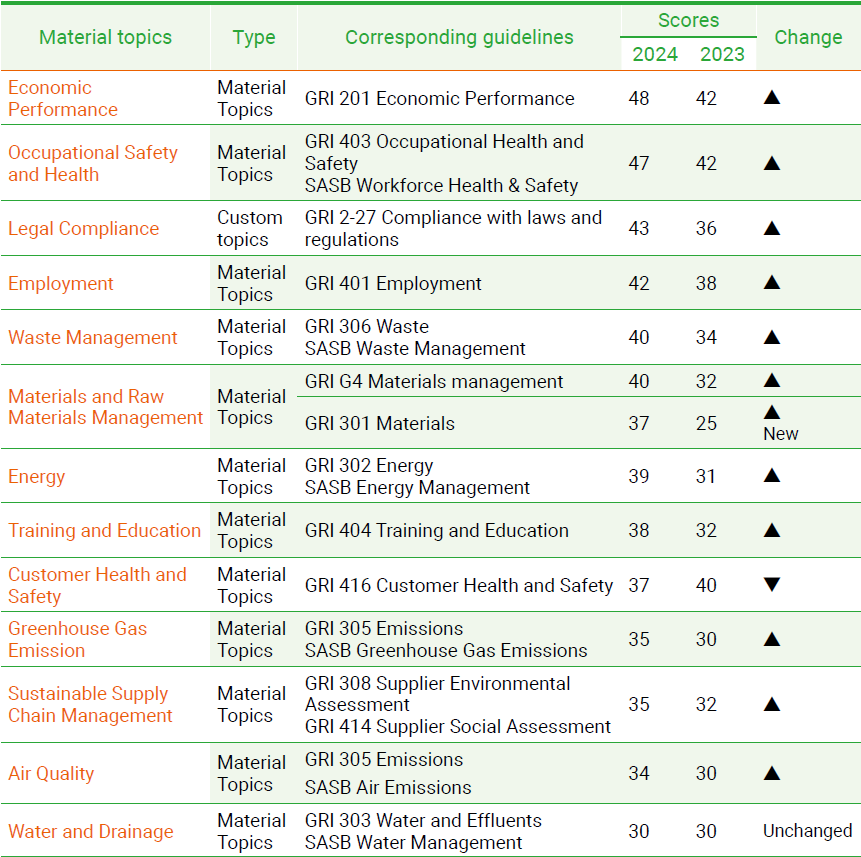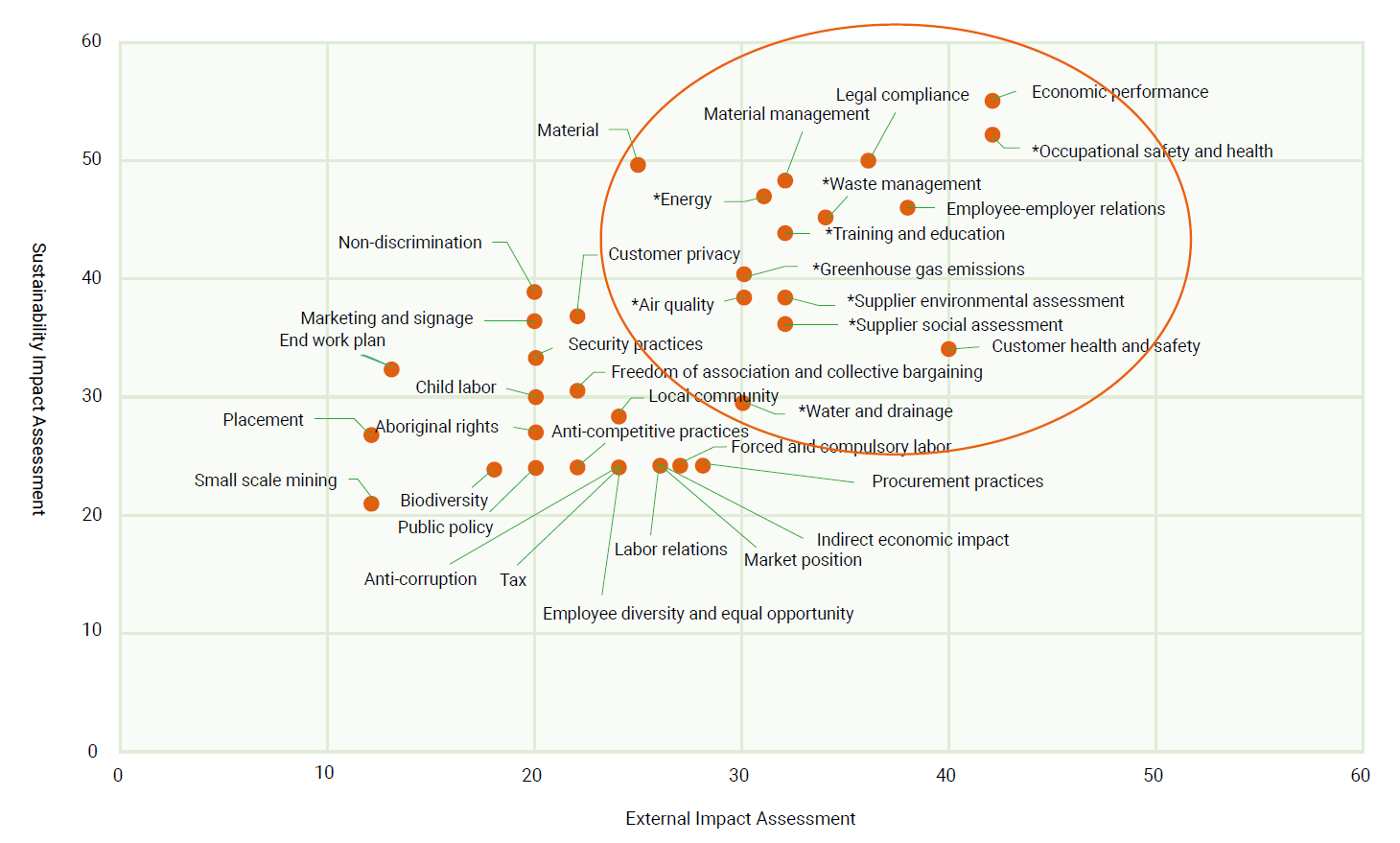Identification Process of Material Topics
To ensure that the sustainability information disclosed meets the needs of stakeholders, the Company follows GRI 3: Material Topics 2021 to regularly identify and assess the impacts of sustainability issues. When existing impacts evolve or new impacts arise, the Company actively identifies and manages them, prioritizing the most significant impacts for reporting. In this way, the material topics are determined.
Identification Results of Material Topics
In 2024, The Company identified a total of 15 material topics through its materiality assessment. Compared to 2023, all topics showed slight changes in scoring and ranking, except for "Water and Effluent," which remained unchanged. A new topic, "Materials," was added this year. During the discussion, it was agreed to merge "Supplier Environmental Assessment" and "Supplier Social Assessment" into a single topic: "Sustainable Supply Chain Management." Additionally, "Materials" and "Material Management" were consolidated into "Material and Inventory Management." As a result, and with final approval from the Chairman, the number of material topics for the year was confirmed at 13, comprising 12 material topics and 1 custom topic. For the management of material topics, please refer to Chapter 1.3.3 " Material Topics Management Approach" of the 2024 Sustainability Report.
Evergreen Steel's Comprehensive Assessment of Material Topics


